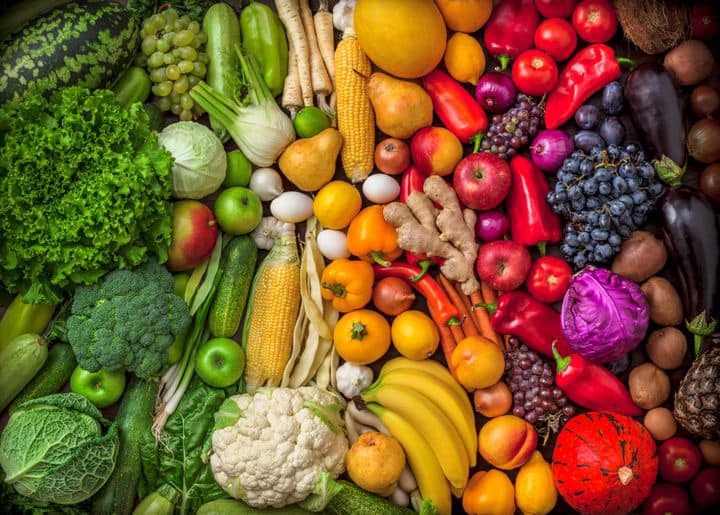
There are plenty of arguments for buying organic produce but there are also plenty for shopping in the more affordable, conventional fruit and vegetable aisles. To help you decide, the Environmental Working Group (EGW) releases an updated Shopper’s Guide known as the Dirty Dozen and Clean Fifteen, every year. ⠀⠀⠀⠀⠀⠀⠀⠀⠀
The is a list of the 12 fruits and vegetables that contain the highest concentrations of pesticides, which the EWG recommends buying organic. ⠀⠀⠀⠀⠀⠀⠀⠀⠀
Strawberries, Spinach, Kale, Nectarines, Apples, Grapes, Peaches, Cherries, Pears, Tomatoes, Celery, Potatoes.
⠀⠀⠀⠀⠀⠀⠀⠀⠀
This is a list of 15 fruits and vegetables that contain the fewest concentrations of pesticides, which the EWG believes are the safest foods to buy conventionally. ⠀⠀⠀⠀⠀⠀⠀⠀⠀
Avocados, Sweet corn, Pineapples, Frozen sweet peas, Onions, Papayas, Eggplants, Asparagus, Kiwis, Cabbages, Cauliflower, Cantaloupes, Broccoli, Mushrooms, Honeydew melons.
⠀⠀⠀⠀⠀⠀⠀⠀⠀
If you can’t memorize or carry around these lists, keep this in mind. That’s why produce with thicker skin, like avocados and pineapples, tends to be a safer bet.
⠀⠀⠀⠀⠀⠀⠀⠀⠀
That said, if you can only afford or only have access to conventional produce, make sure you do not let these lists limit your consumption of fruits and veggies. All research agrees on the health benefits of a diet that includes fruits and vegetables, and eating fresh produce – organic or conventional, as budget allows – is essential for health.
Versión En Español
Orgánico versus no orgánico: ¡lo que necesita saber!
Hay muchos argumentos para comprar productos orgánicos, pero también hay muchos para comprar en los pasillos de frutas y verduras más asequibles y convencionales. Para ayudarlo a decidir, el Grupo de Trabajo Ambiental (Environmental Working Group o EWG) publica una Guía del Comprador actualizada conocida como, cada año.
⠀⠀⠀⠀⠀⠀⠀⠀⠀
Dirty Dozen: es una lista de las 12 frutas y verduras que contienen las concentraciones más altas de pesticidas, que el EWG recomienda comprar productos orgánicos.
Fresas, Espinacas, Col Rizada, Nectarinas, Manzanas, Uvas, Duraznos, Cerezas, Peras, Tomates, Apio, Papas.
Clean Fifteen: es una lista de 15 frutas y verduras que contienen la menor cantidad de pesticidas, que el EWG cree que son los alimentos más seguros para comprar convencionalmente.
Aguacates, maíz dulce, piñas, guisantes congelados, cebollas, papayas, berenjenas, espárragos, kiwis, coles, coliflor, melones, brócoli, champiñones, melones Honeydew.
Si no puede memorizar o llevar estas listas, tenga esto en cuenta: en general, es más probable que los productos con piel delgada contengan más pesticidas. Cuanto más delgada es la piel, más fácil es que los pesticidas entren en ella. Es por eso que los productos con piel más gruesa, como los aguacates y las piñas, tienden a ser una apuesta más segura.
Dicho esto, si solo puede pagar o tener acceso a productos convencionales, asegúrese de no permitir que estas listas limiten su consumo de frutas y verduras. Todas las investigaciones coinciden en los beneficios para la salud de una dieta que incluye frutas y verduras, y comer productos frescos, orgánicos o convencionales, según lo permita el presupuesto, es esencial para la salud.
